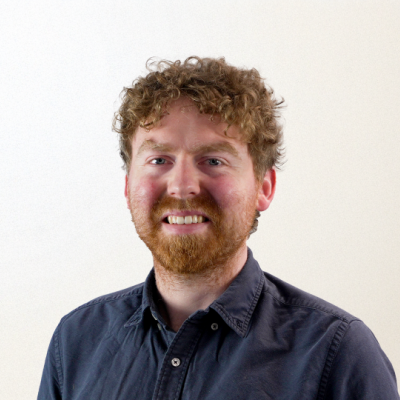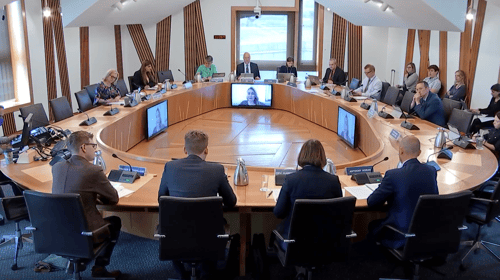On Tuesday, 7 June, we were invited alongside other faith and belief representatives (from the Catholic Church, Church of Scotland and Humanist Society Scotland) to give evidence to the Scottish parliament’s Equalities, Human Rights and Civil Justice Committee. We were asked to share our thoughts on the Scottish government’s proposed Gender Recognition Reform (Scotland) Bill which would change the process by which someone can acquire a gender recognition certificate (GRC) – a certificate that legally recognises that someone’s gender identity is different from their sex.
As the law stands, someone must have lived in their acquired gender for two years and provide medical evidence of a diagnosis of gender dysphoria in order to be granted a GRC. The proposed bill would amend this by removing the requirement for medical evidence and reducing to three months the requirement of how long one must have lived in their acquired gender (though with a further three-month reflection period). It would also reduce the minimum age of application to 16 and introduce a “false application” criminal offence.
The cultural debate around these issues is far too toxic and harmful upon those it impacts. Therefore, it was our aim to be constructive, loving, respectful and truthful in every way in our advocacy, and emphasise the truth that everyone, especially those who struggle with their gender identity, is created in the image of God and is therefore inherently worthy of love, dignity, value and respect.
"It was our aim to be constructive, loving, respectful and truthful in every way in our advocacy."
This is a hugely important issue to speak into and an opportunity to reflect the life-changing power and love of Jesus through the gospel within the Scottish parliament. The basis of our engagement on these issues stems from our 2018 resource Transformed: A brief biblical and pastoral introduction to understanding transgender in a changing culture.
We expressed our significant concerns about the bill as currently drafted, focusing on three key areas:
- the concern that removing the requirement for medical evidence leaves the door open to individuals misusing the system, which would have negative implications for the transgender community and women’s sex-based rights;
- the concern about reducing the minimum age of application to 16 in light of the interim report of the Cass Review, other international medical evidence and comparable legislation in other states; and
- the concern about the unworkability of a “false application” offense, when this would be the only barrier to someone misusing the system.
Our concerns are partly shared by the Equality and Human Rights Commission, the UK government regulator of equality law, as well as many other groups from across civil society. Furthermore, the Committee made a public call for views, and out of the very large number of responses:
- 59 per cent didn’t agree with the overall purpose of the bill;
- more than 60 per cent thought medical documentation should be required;
- more than 60 per cent thought the period of living in the acquired gender shouldn’t be reduced to three months; and
- more than 60 per cent thought the minimum age of application shouldn’t be reduced to 16.
10,800 responses were received, compared to standard national polling which usually has 1,000 – 2,000 respondents.
We sought to represent you as our membership, and did so to the best of our ability. We will keep you updated as the bill progresses through the Scottish parliament – we are hopeful that our evidence may lead to parts of the bill being amended.



